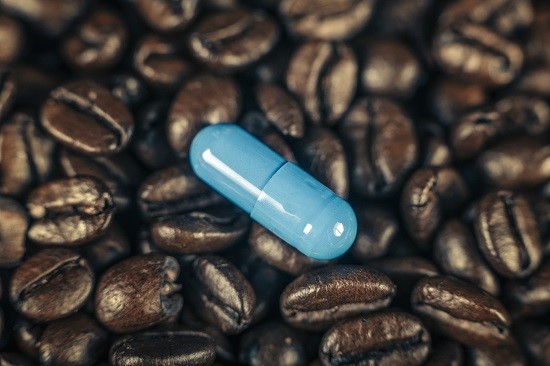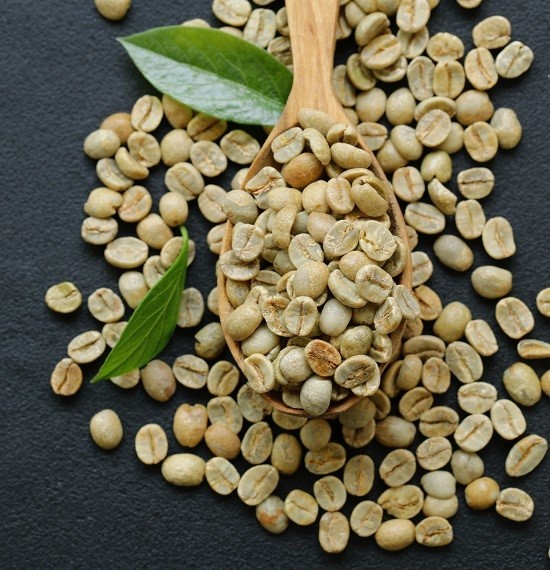AMMAN –
Losing weight is a difficult journey that
can end up in frustration and leave a person demotivated. Diet and exercise will
often greatly help lose the bulk of weight, but there comes a point where the
last few pounds seem impossible to lose. As a result, many find the addition of
supplements to their workout and diet routine greatly beneficial.
اضافة اعلان
Supplements have a specific role and should not
be abused. There is no easy way to lose weight and
supplements cannot replace
exercise and diet. Additionally, many common supplements can come with side
effects and due to the loose regulations concerning supplements, which most people may
not be aware of. It is important to read the labels on products to better
understand how they work.
Metabolism
One of the most important processes in our
bodies is metabolism; it is often misunderstood.
Metabolism is the process by
which the body converts food and other forms of sustenance into energy. This
energy comes in the form of calories, and the amount needed every day depends
on a host of factors.
Our body is in constant need of energy, even
while at rest, for basic living functions such as breathing, repairing cells,
and circulating blood. Metabolism that happens at rest is known as the
basal metabolic rate (BMR). One’s individual BMR determines the exact amount of calories
needed to simply function, but does not account for the calories used while
moving or exercising.
The amount of additional calories needed to
perform everyday activities and exercise forms the active metabolic rate (AMR).
Many begin their weight loss journey by working out and increasing their AMR. For
some, this may not be enough and in these cases supplements may be helpful.
Caution with supplements
It is common for those who are heavier set to
suffer from other health complications. This is especially true for those who
are considered obese.
Conditions relating to the heart are of the
greatest concern. Those who are obese tend to have high blood pressure, also
known as hypertension (HTN). Many
weight loss supplements have a direct link with
increasing blood pressure. Even those with normal blood pressure should use
these supplements with caution, but those with HTN should avoid them altogether.
 Supplements have a specific role and should not
be abused. There is no easy way to lose weight and supplements cannot replace
exercise and diet. (Photo: Envato Elements)
Supplements have a specific role and should not
be abused. There is no easy way to lose weight and supplements cannot replace
exercise and diet. (Photo: Envato Elements)
Diabetes is also commonly associated with
obesity. Caffeine is often found in many of these supplements and can have a
negative effect on blood sugar control. Similarly, certain ingredients may
interact with medication that one may take for other conditions. It is
important to discuss these concerns with physician before starting taking
them.
Caffeine
Caffeine is a commonly used ingredient in many
weight loss supplements. Most are familiar with the benefits of caffeine as a
way to start their mornings. In weight loss, caffeine works to boost the
metabolism by increasing the demand on the BMR.
 In weight loss, caffeine works to boost the
metabolism by increasing the demand on the BMR. (Photo: Envato Elements)
In weight loss, caffeine works to boost the
metabolism by increasing the demand on the BMR. (Photo: Envato Elements)
The effect of caffeine on weight loss is modest,
but one short-term study found that it may burn fat by up to 29 percent. Caffeine
may have a role in weight loss but should be used with caution because it is
addictive and may cause anxiety, sleep disturbances, and gastrointestinal
issues.
Furthermore, caffeine intake should be limited by
those with diabetes, and altogether avoided by those with HTN. Caffeine
supplements may be unnecessary in the first place, as many already receive it
from coffee or tea and too much can increase the risk of side effects.
Garcinia Cambogia extract
Garcinia Cambogia is a tropical fruit that has
become popular in many weight loss supplements. The rind of this fruit contains
a compound known as hydroxycitric acid (HCA). It is believed that HCA inhibits
an enzyme in the body known as citrate lyase, which is responsible for
preventing the formation of fat. HCA may also increase a natural “feel-good”
chemical in the brain, known as serotonin, which can help reduce appetite.
 (Photo: Envato Elements)
(Photo: Envato Elements)
Due to the fact that this compound primarily
works on preventing fat from being made, it is not entirely impressive as a
weight loss agent. Nevertheless, some may find success in using it, especially
when combined with other ingredients. Despite it being a natural ingredient,
there are still side effects that may occur.
Garcinia Cambogia has been shown to help in
diabetes, but due to additive effects when combined with diabetic
medications, caution and consultation should be had before taking it. It has
also been shown to result in
dizziness, dry mouth, headache, and
upset stomach.
In severe cases, manic symptoms are also possible, especially if there is a
preexisting history of psychiatric conditions.
Green coffee bean extract
Another popular, natural supplement is green
coffee bean extract. A green coffee bean is an unroasted, normal coffee bean
that contains two active substances: caffeine and cholorgenic acid. Cholorgenic
acid primarily works by inhibiting the enzyme alpha-glucosidase, which is
responsible for carbohydrate breakdown in the small intestines. By inhibiting
this enzyme, the amount of carbs that can be absorbed in reduced. In addition
to that, cholorgenic acid can help reduce body fat content by reducing
triglyceride and LDL levels.
The majority of side effects can be attributed
to the caffeine content in the coffee bean. The effects of cholorgenic acid
seem to be relatively safe in the short term; more research needs to be
conducted to determine its long-term safety.
Glucomannan
Glucomannan is a dietary fiber found in the
roots of the konjac plant. As is the case with most dietary fibers, when
glucomannan is combined with water, it absorbs it and becomes gel-like in
consistency. The common use of this fiber is to treat constipation, but it may
also have a role in weight loss.
The effect of this compound is not fully
understood but it is believed to operate by two mechanisms. Firstly, it is
believed that the fibers act as a net that collects fats in foods and prevents them
from being absorbed in the body. Secondly, dietary fibers cannot be properly
digested in humans and may promote the feeling of fullness.
 (Photo: Envato Elements)
(Photo: Envato Elements)
The effectiveness of this supplement in weight
loss is still debated and many studies contradict each another. Side effects of
glucomannan include
bloating, flatulence, and soft stool although there are a
couple points of concern. Due to the bulky nature of fibers when introduced to
water, there is a risk of choking or blocking in the throat, esophagus, and
intestines.
Dietary fibers also affect the absorption of medication,
and should not be taken together. If you are on other medications, you should
consult your doctor first. Generally, it is recommended that you take your
medication one hour before or four hours after taking glucomannan.
Conjugated linoleic acid
Conjugated linoleic acid (CLA) is a fatty
acid that can be naturally found in fatty animal foods such as cheese and butter. The
research on this supplement is extremely mixed, but some believe that CLA can
help reduce appetite and stimulate the breakdown of body fat. Unfortunately,
the long-term effects of this supplement are not well understood, although some
warn that there is an increased risk of developing diabetes. Some side effects
of CLA include upset stomach, nausea, soft stool, and fatigue.
Read more Health



